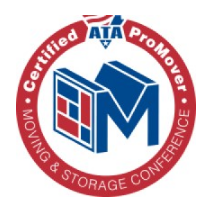Moving Service Costs: Averages, Factors & Saving Tips

Moving to a new home is an exciting adventure that often comes with substantial expenses. The cost of hiring professional movers varies widely, influenced by factors such as the size of your home, distance of the move, and additional services required.
Local moves for a studio apartment typically start at $420, while long-distance relocations for a two to three-bedroom home average around $4,000. Understanding these potential costs is crucial for planning your budget effectively and making informed decisions about your move.
Key factors affecting moving costs include the size of your home, the distance to your new location, and any specialized services you may need. Exploring average prices for different scenarios and considering cost-saving strategies can help you better prepare for the financial aspects of your relocation.
The Cost Structure Of Moving Services
Understanding the cost structure of moving services is crucial when planning your relocation budget. The average cost of moving company services can vary significantly based on several factors.
Local vs. Long-Distance Moves
The distance of your move plays a significant role in determining the cost. Let’s break down the pricing for both local and long-distance moves:
Local Moves:
- Typically priced hourly, ranging from $60 to $150 per mover per hour in places like New York City
- Studio apartments: $420 to $750
- One-bedroom apartments: $600 to $1,200
- Two to three-bedroom apartments: $1,000 to $2,000
Long-Distance Moves:
- Usually priced based on the weight of your belongings and the distance traveled
- A two to three-bedroom home move can average around $4,000
Home Size and Volume of Belongings
The size of your home and the amount of items you’re moving directly impact the cost. Larger homes typically require more movers and time, increasing the overall price.
Additional Services
Many moving companies offer extra services that can add to your total cost:
- Packing services: Full-service packing and unpacking can cost around $700
- Furniture assembly/disassembly: This service often incurs additional fees
- Specialty item moving: Pianos, artwork, or other valuable items may require special handling and increase costs
Seasonal Variations
Moving costs can fluctuate based on the time of year. Peak season (summer months) tends to be more expensive due to high demand, while off-peak seasons may offer more competitive rates.
Insurance Coverage
The level of insurance coverage you choose can affect your overall moving cost. Basic coverage is typically included in the quote, while expanded protection will increase your costs but provide more extensive coverage.
Hidden Costs to Consider
When budgeting for your move, be aware of potential hidden costs:
- Fuel surcharges
- Stair fees or elevator fees
- Long carry fees if the moving truck can’t park close to your home
- Storage fees if your items need to be held temporarily
Understanding these cost factors is essential for accurate budgeting and choosing the right residential moving service for your needs. Remember, while cost is important, it’s equally crucial to consider the reputation and reliability of the moving company to ensure a smooth relocation experience.
Key Factors Influencing Moving Service Costs
Understanding the factors that affect moving costs can help you better estimate and potentially reduce your expenses. Let’s explore the primary elements that influence the price of your move.
Size And Volume Of Your Move
The size and volume of your belongings play a crucial role in determining moving costs. Larger homes typically require more labor and time, increasing the overall price.
- The amount of items you’re moving affects the moving truck sizes needed, which impacts the cost.
- Determining the ideal moving truck size for your move can help you avoid overpaying for unnecessary space.
Distance Of The Move
The distance between your current and new home significantly influences the cost. Local moves (usually within 50 miles) are typically charged hourly.
Long-distance moves are often priced based on weight and mileage. International moves involve additional factors like customs and shipping requirements, substantially increasing costs.
Timing Of Your Move
When you choose to move can affect the price. Peak moving season (May to September) often comes with higher rates due to increased demand.
Weekends and month-ends tend to be more expensive than midweek or mid-month moves. Off-season moves (October to April) may offer more competitive pricing.
Special Items And Handling Requirements
Certain items require extra care or specialized equipment, which can increase costs. Pianos, antiques, or artwork may need special packing and handling.
Large or heavy items like pool tables or safes often incur additional fees. Some movers handle unboxed items, but this may come at an extra cost.
Additional Services
Optional services can add to your moving costs. Packing and unpacking services can cost around $700 for a full-service option.
Furniture disassembly and reassembly often incur extra charges. Storage services, if needed, will add to the overall cost.
Accessibility Of Your Home
The ease of access to your home can impact moving costs. Stairs, elevators, or long distances from the moving truck to your door may result in additional fees. Narrow streets or parking restrictions can lead to increased labor time and costs.
Insurance Coverage
The level of insurance you choose affects your total moving expense. Basic coverage is typically included in the quote but offers minimal protection. Full-value protection offers extensive coverage but increases the overall cost.
By considering these factors, you can better estimate your moving costs and make informed decisions about your relocation. Remember, while it’s important to find a competitive price, prioritizing a reputable moving company ensures a smoother, more reliable moving experience.
Breaking Down The Costs: What To Expect
Understanding the typical costs associated with different types of moves can help you budget effectively. Let’s explore the average prices for local and long-distance relocations, as well as additional services that might impact your total moving expenses.
Average Costs For Local Moves
Local moves are typically priced based on hourly rates and the number of movers required. In New York City, for example, you can expect the following ranges:
- Studio apartments: $420 to $750
- One-bedroom apartments: $600 to $1,200
- Two to three-bedroom apartments: $1,000 to $2,000
- Three to four-bedroom apartments: $1,500 to $3,500
Keep in mind that these prices can vary depending on the specific moving company and your location. If you’re wondering about moving out with $5000, it’s generally sufficient for a local move, including some additional expenses. However, knowing all you have to pay is best.
Pricing For Long-Distance Relocations
Long-distance moves are usually priced based on the weight of your belongings and the distance traveled. The cost to move across the country can vary significantly, but here are some general estimates:
- Studio apartment: $900 to $2,500
- One-bedroom home: $1,500 to $3,500
- Two-bedroom home: Approximately $4,300 for moves over 1,000 miles
- Three-bedroom home: $3,000 to $7,500
- Four or more bedrooms: Can exceed $8,000
When moving long distance, it’s crucial to research and compare quotes from multiple top long distance movers to ensure you’re getting the best value for your money. For an affordable cross-country move, consider options like hybrid moving services or renting a moving container.
Additional Services And Their Costs
Many moving companies offer extra services that can increase your total moving cost:
- Packing and Unpacking:
- Full-service packing and unpacking: Around $700
- Partial packing services: Varies based on the number of items
- Specialty Item Handling:
- Piano moving: $150 to $800
- Artwork and antiques: Varies based on value and fragility
- Storage Services:
- Short-term storage: $50 to $200 per month
- Long-term storage: Often discounted for extended periods
- Insurance:
- Basic coverage: Usually included in the quote
- Full-value protection: Typically costs 1-2% of the total value of your items
- Furniture Assembly/Disassembly:
- Often charged at an hourly rate, ranging from $50 to $100 per hour
Hidden Costs To Consider
Be aware of potential hidden costs that might not be immediately apparent:
- Elevator fees or long carry charges
- Stair fees for buildings without elevators
- Shuttle services if a large truck can’t access your home
- Expedited delivery fees for long-distance moves
- Seasonal price increases during peak moving times
Tipping Your Movers
While not mandatory, tipping is customary for good service. Consider the following guidelines:
- For a half-day move (4 hours or less): $20 per mover
- For a full-day move (8 hours or more): $40 per mover
- For complex or multi-day moves: 5-10% of the total moving cost, split among the crew
By understanding these cost breakdowns, you can better prepare for your move and avoid unexpected expenses. Always get detailed quotes from multiple moving companies to ensure you’re getting the best value for your specific moving needs.
Comparing Moving Options: Full-Service Vs. DIY
Deciding between a full-service moving company and a do-it-yourself approach is crucial when planning your move. The best choice depends on your budget, time constraints, and personal preferences, as each option has its advantages and disadvantages.
Choosing a moving company or opting for a DIY approach requires careful consideration. Comparing self-service and full-service movers can provide a clearer picture of what to expect from each option.
Full-Service Moving: Convenience At A Cost
Full-service moving companies provide a complete solution for those who prefer a hands-off approach. Here’s what you can expect:
- Packing and Unpacking: Professional movers will pack your belongings, transport them, and unpack at your new location.
- Loading and Unloading: The moving team handles all the heavy lifting, saving you time and potential injury.
- Transportation: Your belongings are transported in the company’s truck, often with tracking capabilities for long-distance moves.
- Insurance Options: Full-service movers typically offer various insurance plans to protect your items during the move.
Moving companies and their packing options vary, so discuss your specific needs.
Pros:
- Minimal effort required on your part
- Time-saving
- Professional handling of your belongings
- Ideal for large or complex moves
Cons:
- More expensive than DIY options
- Less control over the moving process
- Potential for scheduling conflicts
Self-Service Moving: Rental Trucks And Containers
Self-service options can be appealing for those on a tighter budget or who prefer more control over their move. Here are two popular DIY moving methods:
Rental Trucks
Renting a moving truck allows you to handle the entire moving process yourself. Understanding the costs of moving trucks is essential for budgeting your DIY move effectively.
Pros:
- More affordable than full-service movers
- Complete control over packing and transportation
- Flexible scheduling
Cons:
- Requires significant time and effort
- Potential for injury during loading and unloading
- Responsibility for driving a large vehicle
Moving Containers
Moving containers offer a middle ground between full-service and truck rentals. A company drops off a container at your home, you load it, and they transport it to your new location.
Pros:
- More affordable than full-service movers
- Flexible loading and unloading timeframes
- No need to drive a large vehicle
Cons:
- More expensive than rental trucks
- Requires effort for loading and unloading
- Limited availability in some areas
Hybrid Options: Customizing Your Move
Some moving companies offer hybrid services that allow you to customize your moving experience. You might choose to:
- Pack your belongings yourself but hire movers for loading, transportation, and unloading
- Use a moving container but hire local labor to help with loading and unloading
- Rent a truck and hire movers for loading and unloading only
These options can help you balance cost and convenience based on your specific needs and budget.
Factors To Consider When Choosing
When deciding between full-service and DIY moving options, consider the following:
- Budget: Determine how much you’re willing to spend on your move.
- Time: Assess how much time you can dedicate to the moving process.
- Physical Ability: Consider whether you’re capable of handling the physical demands of a DIY move.
- Distance: Long-distance moves may be more challenging to manage on your own.
- Complexity: Large homes or specialty items might benefit from professional handling.
- Stress Level: Evaluate how much moving-related stress you’re willing to take on.
By carefully weighing these factors and understanding the costs and benefits of each option, you can choose the moving method that best suits your needs. This approach ensures a smooth transition to your new home while aligning with your preferences and circumstances.
Strategies To Reduce Your Moving Costs
Moving expenses can add up quickly, but with smart planning and strategic decisions, you can significantly reduce costs without compromising the safety of your belongings. Let’s explore effective methods for saving money on your relocation and making it more affordable.
Timing Your Move Strategically
The timing of your move can have a substantial impact on the overall cost. Consider the following strategies:
- Off-peak seasons: Moving during fall or winter months can be cheaper than peak summer months.
- Mid-month moves: Prices are often lower in the middle of the month compared to the beginning or end.
- Weekday relocations: Moving on a weekday is typically less expensive than weekends.
Decluttering Before The Move
Reducing the volume of items you need to move can significantly lower your costs. Here are some steps to declutter effectively:
- Start early: Begin sorting through your belongings weeks or months before the move.
- Sell unwanted items: Host a garage sale or use online platforms to sell items you no longer need.
- Donate: Give away usable items to charity organizations.
- Recycle or dispose: Properly dispose of items that can’t be sold or donated.
Packing Strategies To Cut Expenses
Efficient packing can save you money on both materials and labor. Consider these essential packing tips for moves:
- Use free boxes: Collect boxes from local stores, friends, or online marketplaces.
- Utilize household items: Use towels, blankets, and clothing as padding for fragile items.
- Pack efficiently: Maximize space in each box to reduce the total number of boxes needed.
- Label clearly: Proper labeling can speed up the unloading process, potentially reducing labor costs.
For delicate items, such as packing glasses for a move, use specialized techniques to ensure their safety without expensive packing materials.
Comparing Multiple Quotes
Don’t settle for the first quote you receive. Follow these guidelines:
- Get at least three quotes from reputable moving companies.
- Compare services offered, not just prices.
- Ask about any hidden fees or additional charges.
- Negotiate with movers, especially during off-peak times.
Utilizing Friends And Family
Enlisting help from your social network can significantly reduce costs. Consider these options:
- Ask friends and family to help with packing and loading.
- Organize a moving party with food and drinks as a thank-you.
- Be sure to return the favor when they need help moving.
Taking Advantage Of Tax Deductions
If you’re moving for work, you may be eligible for tax deductions. Keep these points in mind:
- Keep all receipts related to your move.
- Consult with a tax professional to understand which expenses are deductible.
- Document the reasons for your move if it’s job-related.
Considering Alternative Moving Methods
Think outside the traditional full-service moving company. Explore these alternatives:
- Rent a moving truck and do the work yourself.
- Use a portable moving container for a hybrid approach.
- Ship some items separately if it’s more cost-effective.
Minimizing Additional Services
While convenient, additional services can quickly increase your moving costs. Consider these cost-saving measures:
- Pack items yourself instead of paying for packing services.
- Disassemble and reassemble furniture on your own.
- Clean your old and new homes yourself rather than hiring cleaners.
By implementing these strategies, you can significantly reduce the cost of your move while ensuring the safety of your belongings. Every dollar saved on moving expenses can be used to help settle into your new home or explore your new neighborhood.
Navigating The Quote Process
Obtaining accurate estimates and ensuring the best value for your moving service requires a thorough understanding of the quote process. Let’s explore the steps to secure reliable quotes and make informed decisions about your move.
How To Obtain Accurate Estimates
Getting an accurate estimate forms the foundation of a successful move. Follow these steps to ensure you receive precise quotes:
- Provide detailed information: Be thorough when describing your move to potential movers. Include:
- The exact addresses for pickup and delivery
- The number and types of rooms in your home
- Any special items that require extra care
- Use online tools: Many moving companies offer a moving cost estimation tool on their websites for quick initial estimates.
- Request in-home assessments: Schedule in-home assessments with multiple companies for the most accurate quotes, especially for larger moves.
- Be consistent: Provide the same information to each company to ensure fair comparisons.
Understanding Different Types Of Estimates
Moving companies typically offer three types of estimates:
- Non-binding estimate: An approximation of the cost based on the mover’s survey of your items, with the final cost potentially higher or lower.
- Binding estimate: A guaranteed price for the move, based on the items and services listed in the estimate.
- Binding not-to-exceed estimate: The cost will not exceed the quoted amount but may be lower if the actual weight of your items is less than estimated.
Questions To Ask When Getting Quotes
Get an accurate quote by asking the following questions:
- Are there any additional fees not included in the estimate?
- What insurance options are available, and what do they cover?
- How is the cost calculated (by weight, volume, or hourly rate)?
- What payment methods are accepted?
- Are there any discounts available?
Red Flags To Watch Out For
Be cautious of the following when reviewing quotes:
- Unusually low estimates compared to others
- Companies unwilling to provide a written estimate
- Requests for large deposits upfront
- Vague or confusing contract terms
Comparing Quotes Effectively
Compare multiple quotes systematically:
- Create a spreadsheet listing all services and costs from each company.
- Look beyond the bottom line to compare specific services offered.
- Consider the company’s reputation and customer reviews alongside the price.
- Factor in any additional costs not included in the initial quote.
Negotiating With Moving Companies
Don’t hesitate to negotiate with moving companies:
- Ask if they can match or beat a competitor’s price for similar services.
- Inquire about current promotions or discounts.
- See if they offer price matching guarantees.
- Consider bundling services for a better overall rate.
Understanding The Fine Print
Before accepting any quote:
- Read the entire contract carefully.
- Ensure all verbal agreements are included in writing.
- Understand the company’s liability and insurance policies.
- Be clear on cancellation policies and potential fees.
By following these guidelines, you’ll be well-prepared to handle the quote process with confidence. Remember, the cheapest option isn’t always the best value.
Consider the full range of services, the company’s reputation, and the level of protection offered for your belongings when making your final decision.
Ensuring A Smooth And Cost-Effective Move
A successful move combines finding the right price with planning and executing a smooth transition to your new home while staying within budget. Let’s explore the essential steps for budgeting to move out and ensuring a cost-effective relocation.
Creating A Comprehensive Moving Budget
To avoid unexpected costs, start by listing all potential expenses. Include moving company fees, packing supplies, travel costs, storage fees (if needed), insurance, and utility setup fees.
Add a contingency fund (10-15% of total budget) and track expenses throughout the moving process. Consider using budgeting apps or spreadsheets for easy monitoring.
Timeline For Booking Moving Services
Timing is crucial for securing the best rates and ensuring availability. Here’s a general timeline:
- 8-12 weeks before: Start researching moving companies
- 6-8 weeks before: Schedule in-home estimates
- 4-6 weeks before: Book your chosen moving company
- 2-4 weeks before: Confirm all details with the movers
Remember, the duration of a move can vary, so plan accordingly.
Preparing For Moving Day: Checklist And Tips
Preparing for a move well in advance can save you time and money. Here’s a checklist to help:
- Declutter and donate unused items
- Start packing non-essential items early
- Label boxes clearly with contents and destination room
- Prepare a “first night” box with essentials
- Arrange for childcare or pet care on moving day
- Notify important parties of your change of address
For those moving for the first time, check out these tips for a smooth first move.
DIY Vs. Professional Services: When To Save And When To Splurge
Decide which tasks to handle yourself and which to leave to professionals.
DIY:
- Packing non-fragile items
- Decluttering and organizing
- Cleaning your old home
Professional Services:
- Moving large furniture
- Packing fragile items
- Disassembling and reassembling furniture
Money-Saving Tips For Moving Day
Reduce costs on the day of your move:
- Have everything packed and ready before movers arrive
- Clear pathways to ensure efficient loading and unloading
- Offer refreshments to keep movers energized and working efficiently
- Be available to answer questions and provide direction
Post-Move Considerations
After the move, take these steps to ensure a smooth transition:
- Inspect delivered items for damage
- Unpack systematically, starting with essentials
- Update your address with important contacts
- Explore your new neighborhood to familiarize yourself
- Leave reviews for your moving company to help others
Dealing With Unexpected Costs Or Issues
Despite careful planning, unexpected situations may arise. Keep emergency funds accessible and understand your moving company’s dispute resolution process.
Know your rights as a consumer, document any issues thoroughly, and communicate promptly with your moving company to resolve problems. By following these guidelines, you’ll be well-prepared to handle the challenges of moving day and beyond.
Take the time to prepare, stay organized, and don’t hesitate to ask for help when needed. With the right approach, you can ensure a smooth transition to your new home while keeping costs under control.
Frequently Asked Questions
- How far in advance should I book a moving company?
For local moves, booking 4-6 weeks in advance is advisable. Long-distance or international moves require more planning, so aim for 8-12 weeks ahead.
During peak moving season (May to September), consider booking even earlier to ensure availability and potentially secure better rates.
- Are there any items that movers won’t transport?
Most moving companies have restrictions on transporting hazardous materials, perishables, plants, pets, and valuable personal items. This typically includes flammable items, chemicals, firearms, and important documents.
Always check with your specific moving company for their complete list of prohibited items to avoid any surprises on moving day.
- How much should I tip my movers?
For local moves, a general guideline is to tip $4-$5 per hour per mover. Long-distance moves typically warrant a tip of 5-10% of the total bill.
Consider tipping more for exceptional service, and remember that tipping is not usually included in moving cost estimates.
- What’s the difference between valuation and insurance for my move?
Valuation determines the moving company’s maximum responsibility for lost or damaged items, but it’s not insurance. It’s the carrier’s limit of liability.
Insurance is a separate policy you can purchase to protect your belongings. For complete coverage, consider getting full-value protection.
- Can I negotiate the price with moving companies?
Yes, negotiating with moving companies is often possible. Here are some strategies:
- Compare quotes from multiple providers
- Ask if they can match or beat competitors’ prices
- Consider booking during off-peak times or mid-week for potential discounts
Remember, while price is important, factor in the company’s reputation and services offered when making your decision.
Conclusion
Understanding the cost of moving services is crucial for planning a successful relocation. Prices can vary significantly based on factors like home size, distance, and additional services.
Local moves typically start at $420 for a studio apartment, while long-distance relocations average $4,000 for larger homes. However, these figures are just starting points, as your unique situation, including the volume of belongings and specific requirements, will ultimately determine the final cost.
Thorough research and careful planning are key to making cost-effective decisions. Take the time to compare quotes from multiple moving companies, considering both price and reputation.
Don’t hesitate to ask questions about potential hidden costs or negotiate rates. By leveraging this information, you can make informed choices that align with your budget and moving needs.
The right moving service should offer a balance of affordability and quality. Whether you’re relocating locally or across the country, use this knowledge to confidently approach the process and ensure a smooth transition to your new home.
Related Articles
Where to Move from Texas: Top 10 States for Ex-Texans in 2025

Where to Move from Texas: Top 10 States for Ex-Texans in 2025 Record numbers of Texans are exploring life beyond state lines, driven by soaring housing costs, evolving career landscapes, and the search for new lifestyle opportunities. The decision to leave Texas stirs intense emotions – after all, the Lone Star State‘s unique culture and […]
Read MoreHow to Move a House from One Location to Another: Planning to Completion

Relocating an entire house might seem like something out of a movie, but this remarkable feat of engineering happens more often than you’d think. From preserving historic mansions to saving beloved family homes from coastal erosion, house moving represents the intersection of cutting-edge engineering and practical problem-solving. With project costs typically ranging from $18,000 to […]
Read More




